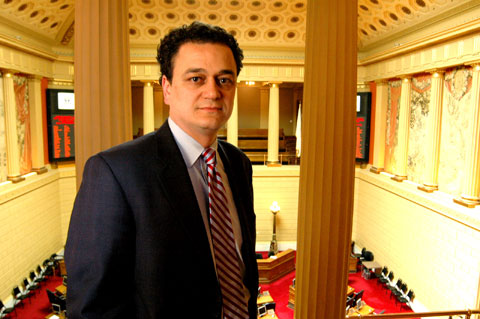
Fox |
In recent months, Senate President M. Teresa Paiva Weed has emerged as perhaps the state's leading voice for economic revival.
In January, she announced the release of a report titled "Moving the Needle," which focused on ways to improve the state's poor showing in business climate rankings. And last week, she unveiled a package of 25 legislative proposals built on the report's recommendations.
The effort has attracted its share of criticism — much of it of the what-took-you-so long variety; Rhode Island has been struggling with a serious unemployment problem for years, now. But on the whole, the push has been a public relations boon for the Senate president.
Kinda makes you wonder why the House of Representatives, often the driver of economic policy, has been so quiet.
Well, give Paiva Weed credit for grabbing the stage — for taking hold of the issue right from the start of the legislative session. And give her credit for latching onto the rankings — high-profile, easily understood measures of the state's economic ineptitude.
But that's not the whole story. It appears that Speaker of the House Gordon Fox, who has some economic reform ideas of his own, is carefully ceding the spotlight to his Senate counterpart.
Indeed, even as Fox gets off the schneid this week to pitch a revolving fund for local roads and bridges, Paiva Weed will be at his side.
The Senate president, after all, controls the fate of the same-sex marriage bill. And Fox, who is openly gay, sees passage as a vital piece of his legacy.
This "play nice with Paiva Weed" strategy took a more public turn last week when Fox's House Judiciary Committee chairwoman, Edith Ajello, took the remarkable step of nullifying a unanimous committee vote for an ethics bill the Senate president opposes.
But if that move required a rather embarrassing contortion of legislative rules, no one outside the political class much noticed. It is the step-back on the economy — the single biggest concern for a struggling Rhode Island — that is most significant here, and most indicative of how important gay marriage is to the Speaker.